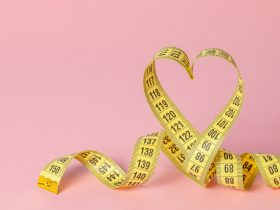Human growth hormone (HGH), a naturally occurring hormone that promotes growth and development, has sparked interest as a potential weight loss aid.
Available in pills, powders, and injections, HGH is touted by some as a dieter’s dream. However, the reality of its effectiveness and safety is far more complex.
What is HGH?
Human Growth Hormone (HGH), also known as somatotropin, is a peptide hormone produced by the pituitary gland, a small gland at the base of the brain. This hormone plays a vital role in growth, development, and various bodily functions.
During childhood and adolescence, HGH is essential for growth, promoting the elongation of bones and the development of muscles and tissues.
Beyond these formative years, HGH continues to influence tissue repair, muscle growth, brain function, energy levels, and metabolism throughout a person’s life. It aids in the repair and regeneration of tissues, making it crucial for recovery from injuries, while also stimulating protein synthesis, leading to muscle growth and improved muscle mass.
Additionally, HGH supports cognitive functions, influencing mood, memory, and overall brain health, and helps regulate metabolism, enhancing energy levels and promoting the breakdown of fats. Moreover, it contributes to bone density and strength, reducing the risk of osteoporosis.
Production and Decline
The production of HGH peaks during adolescence, a period of rapid growth and development. However, after the age of 30, HGH levels gradually decline, which is associated with aging symptoms such as reduced muscle mass, increased body fat, and decreased skin elasticity.
Factors Influencing HGH Levels
Various factors influence HGH levels throughout life. Sleep, for instance, is crucial for HGH release, particularly during deep sleep stages. Poor sleep quality can significantly reduce HGH production.
High-intensity exercise, especially resistance training, can stimulate HGH release, while diet also plays a role, with low sugar intake and intermittent fasting being potential boosters of HGH production.
Chronic stress, on the other hand, can negatively impact HGH levels due to elevated cortisol, a stress hormone. Additionally, obesity is linked to lower HGH levels, as excess body fat, particularly visceral fat, inhibits HGH production.
HGH and Obesity
Studies show that obese adults tend to have lower HGH levels compared to their normal-weight counterparts. This is partly due to higher insulin levels and increased adiposity, which suppress HGH release.
The potential for boosting HGH to aid in weight loss is an area of interest, as higher HGH levels can enhance fat metabolism, potentially supporting weight loss efforts.
However, the effectiveness and safety of HGH for weight loss require further research and medical supervision.
Medical and Therapeutic Uses
HGH therapy is commonly used to treat children with growth hormone deficiencies or growth disorders, such as Turner syndrome and Prader-Willi syndrome.
Adults with HGH deficiency due to pituitary tumors or other medical conditions may also benefit from HGH therapy, which can improve body composition, bone density, and quality of life.
Some individuals seek HGH for anti-aging benefits or athletic performance enhancement, although its use for these purposes is controversial and regulated due to potential side effects and ethical considerations.
The Early Promise and Subsequent Doubts
Interest in HGH for weight loss began with a 1990 study published in the New England Journal of Medicine. This study indicated that synthetic HGH injections led to an 8.8% gain in muscle mass and a 14% loss in body fat without changes in diet or exercise.
Despite these promising results, subsequent studies have failed to replicate these findings, leading the New England Journal of Medicine to denounce the misuse of the initial study’s findings in 2003. Nevertheless, the 1990 study continues to be cited in marketing HGH for weight loss online.
What the Research Says
Research involving HGH injections for individuals with HGH deficiency due to pituitary disease has shown improvements in body composition, including increased bone and muscle mass and decreased fat stores.
However, these changes do not equate to significant weight loss in obese individuals without HGH deficiency. Analyses have revealed only minimal improvements in body composition and no significant reduction in overall body weight.
A separate study also found that HGH therapy led to minor decreases in fat and increases in lean mass but did not affect body weight. Consequently, the American Association of Clinical Endocrinologists advises against using HGH for obesity treatment.
Risks and Realities of HGH Products
Human Growth Hormone (HGH) can be prescribed and administered through injections for certain medical conditions.
These conditions include HGH deficiency, where the body does not produce enough of the hormone; for patients recovering from organ transplants to support healing and minimize rejection risk; and for combating muscle wasting in AIDS patients to help maintain muscle mass.
Over-the-counter products like HGH pills and powders are often advertised with claims of similar benefits to the injectable version. However, experts caution that these products are ineffective.
As a protein, HGH must be injected because it would be broken down in the stomach if taken orally, rendering it ineffective. Furthermore, non-approved products pose considerable risks due to uncertain safety and purity levels, making them potentially hazardous.
The U.S. Food and Drug Administration (FDA) has not sanctioned the use of HGH for weight loss or anti-aging due to multiple concerns. The hormone’s steep cost, around $1,000 per month, makes it a prohibitive choice for many people.
Additionally, there are significant health risks linked to its use, including the possibility of exacerbating insulin resistance, potentially leading to type 2 diabetes. The absence of long-term safety data further hinders its approval for these uses.
Healthy individuals who take HGH are exposed to various risks, such as joint and muscle discomfort, swelling, carpal tunnel syndrome, and heightened insulin resistance. Older adults, in particular, might experience more intense symptoms due to their increased sensitivity to the hormone’s effects.
These adverse reactions highlight the necessity of limiting HGH use to medical treatments under professional supervision for conditions that have been officially approved.
The Bottom Line on HGH for Weight Loss
Using HGH for weight loss, muscle building, or anti-aging remains experimental and controversial. While there may be minor reductions in fat and increases in muscle mass, there is insufficient evidence to support its use as a safe and effective weight loss solution.
The most reliable method for healthy weight loss continues to be a balanced approach involving fewer calorie intake and increased physical activity. Investing in a nutritious diet and regular exercise remains the best strategy for sustainable weight management.
















Find Us on Socials